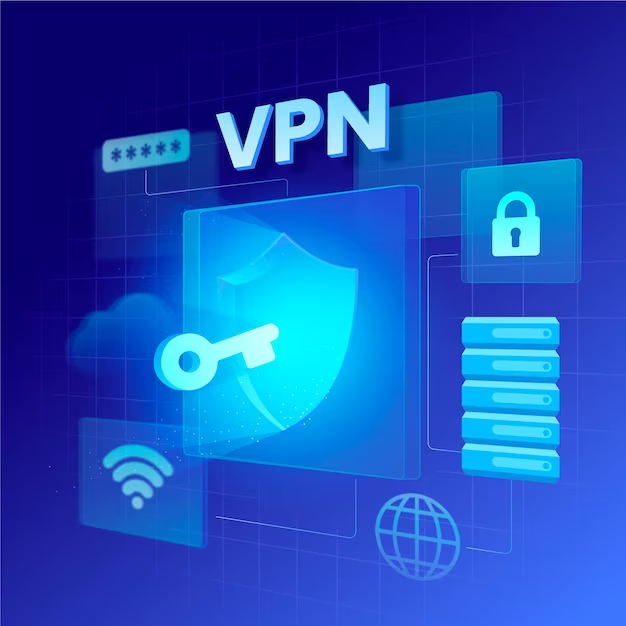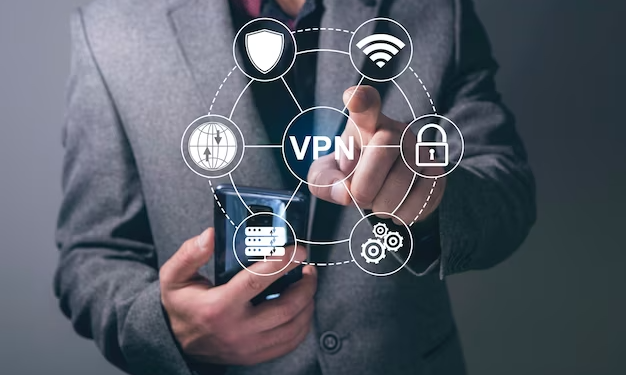The use of methods to protect personal data has increased in popularity due to rising concerns about internet privacy. Virtual private networks, VPNs, and proxies are two popular methods for achieving internet privacy. They don’t function the same way or meet the same needs, even though their primary objective is to increase security and privacy. In this post, we shall look at the differences between proxies and VPNs, as well as their advantages and disadvantages, to help you select the option that best suits your needs for online privacy.
Table of Contents
How to Recognize Proxies and VPNs

Virtual private networks, or VPNs:
A virtual private network is a full-featured solution that creates a secure and private tunnel for your online activities while encrypting your internet connection. When you connect to a VPN server, your internet traffic is encrypted, which makes it more difficult for third parties to monitor your online activities. In addition to increasing privacy, VPNs also provide other benefits, like hiding your IP address and granting you access to content that is blocked in your area.
Proxies:
In contrast, proxies operate as go-betweens for your device and the internet. When you use a proxy, your IP address is hidden, and your internet traffic is routed via a server. Proxies are frequently used to obtain content that might be blocked due to geographic restrictions or to remain anonymous. Proxy servers, on the other hand, don’t offer the same degree of security and encryption for your whole internet connection as VPNs do.
Advantages of VPNs:
- Encryption across the board: The fact that VPNs encrypt your entire internet connection is one of its main benefits. This shows that all data is encrypted during transmission between your device and the VPN server, protecting sensitive information from prying eyes.
- IP Address Masking: With a VPN, the IP address of the VPN server is used to mask your actual IP address. This allows you to skip geographic limitations and access content from other countries while also providing you with an extra layer of anonymity.
- Secure Wi-Fi Connection: VPNs are very beneficial when using open-air wireless networks. Because of the encryption provided by a VPN, your data is secure even if the Wi-Fi connection is hacked.
- Bypassing Censorship: VPNs work well as tools for unblocking content in areas where internet restriction is common. With a VPN, users may hide their IP address and encrypt their connection to avoid censorship and access the unrestricted internet.
VPNs Limitations:
- Speed Reduction. There can be a little drop in internet speed because VPNs encrypt all internet traffic. The amount of a decrease depends on several factors, including the VPN provider, the server location, and the level of encryption used.
- Cost: While there are VPN services that are available for free, premium VPN services typically require a membership fee. For those who value their online privacy above all else, the extra security features and dependability of premium services might make the cost worthwhile.
Proxies:

Advantages of Proxies:
- IP Address Masking: Similar to VPNs, proxies offer some anonymity by hiding your IP address. This allows you to escape geo-restrictions and access content specific to a given area.
- Access Control: Proxies are helpful for organizations controlling employee internet usage because they can be set up to limit access to particular websites or content.
- Ease of Use: In general, proxies are simple to configure and operate. Users can directly configure proxy settings in many web browsers.
Limitations of Proxies:
- Limited Encryption: Proxies don’t encrypt your whole internet connection, in contrast to VPNs. They do not offer the same level of complete security as VPNs, even with the fact that they can offer some privacy.
- Selective Protection: Proxies might only protect against particular kinds of internet traffic, like web browsing, leaving other services or apps on your device exposed.
- Potential for Insecure Connections: Since some proxies might not follow secure protocols, there’s a chance that your information could be intercepted. When handling sensitive data, it is especially important to keep this in mind.
Enhancing Proxy Security
A major advancement in the field of proxies is GoProxies. GoProxies aims to reduce some of the problems associated with traditional proxies by utilizing improved security measures. These proxies scan network traffic, detect potential threats, and enhance security overall using machine learning methods.
The integration of GoProxies with proxy services strengthens defenses against malicious activities such as DDoS attacks and attempts at data theft. This innovation is a step towards improving the safety and dependability of proxies for users who desire more security and privacy.
Choosing Between VPNs and Proxies
The decision between using a VPN or a proxy depends on your specific privacy and security needs. Consider the following factors when making your choice:
Choose a VPN if:
- Comprehensive Security: If you prioritize comprehensive security and encryption for all your internet activities, a VPN is the better choice.
- Privacy across Applications: If you want to ensure that all applications on your device benefit from enhanced privacy, a VPN is the most suitable option.
- Access to Restricted Content: A VPN is the best option if you want to be able to access content that is restricted by region while still having a secure internet connection.
Choose a proxy if:
- Selective Anonymity: If you only need anonymity for specific web browsing activities and are less concerned about the security of other applications, a proxy may be sufficient.
- Access Control: A proxy offers greater control if you need to manage which content or websites can be accessed on your network.
- Ease of Use: If simplicity and ease of use are paramount, proxies are generally easier to set up and configure.
Final Thought:
While they both greatly improve privacy online, proxies and VPNs serve different purposes. VPNs offer total protection because they encrypt your entire internet connection. They are perfect for individuals who respect their privacy in all of their apps and activities. However, proxies, such as GoProxies, offer extra access control features and privacy for certain online browsing activities.
The choice between a VPN and a proxy ultimately boils down to your personal security preferences and needs. In a world where the internet is growing more and more connected, using these tools when you go online is a proactive way to protect your online identity, whether you choose a VPN for encryption-focused browsing or a proxy for selective anonymity.
If you would like to read about how the Apple MacBook Air M3 and iPad Pro are coming by March, Click here
What is the difference between a VPN and a Proxy?
The main difference between VPN and proxy functions is that the former only serves as a link between users and the internet. However, since VPN traffic passes via both the user’s device and a secure connection, it is a useful tool for providing network security.
Is a VPN better than a proxy?
Yes, a VPN is better since it protects your data and routes it through a secure VPN server to provide privacy and security. A proxy doesn’t always provide additional security; it just routes your traffic via a mediating server.
Who needs a VPN?
Therefore, a VPN is certainly useful if you frequently use public Wi-Fi, conduct sensitive transactions, or want to stream your favorite shows safely. It strengthens the security of your website’s traffic.



